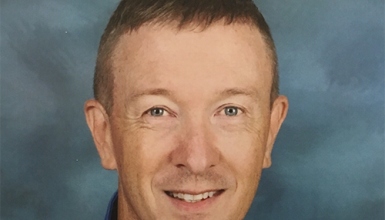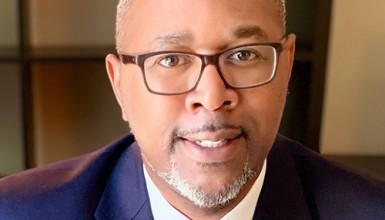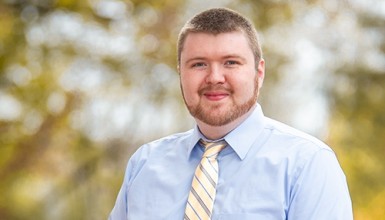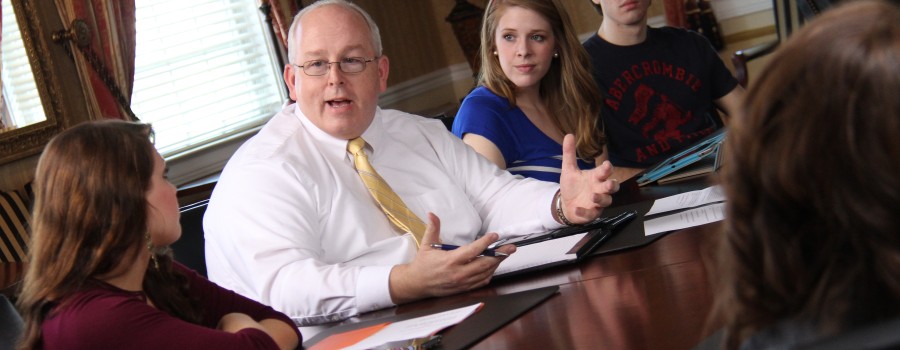Developing expert educators for tomorrow's classrooms.
If you’re looking for an affordable Master of Arts in Teaching (MAT) online program, University of the Cumberlands is the place to start your journey. Our online Master of Arts in Teaching degree is designed to prepare aspiring educators to make a meaningful impact in classrooms and communities around the world. Through a supportive and collaborative online learning environment, you’ll gain the knowledge, skills, and confidence you need to transition into the teaching profession and begin shaping the lives of students.
At Cumberlands, the MAT online program combines practical coursework with research-based teaching strategies to help you develop as an effective educator. You’ll explore classroom management, curriculum design, instructional planning, and methods to engage diverse learners—equipping you to serve in today’s dynamic educational settings. Flexible online scheduling allows you to balance coursework with your other commitments, making it possible to earn your Master of Arts in Teaching online while working full time.
Whether you’re pursuing initial teacher certification or advancing your career in education and teaching, the Master of Arts in Teaching degree online at Cumberlands will help you achieve your professional goals. With affordable tuition, dedicated faculty support, and a mission-driven approach, this program positions you for success as you step into the classroom and beyond.
By the Numbers
Programs & Requirements
Master of Arts in Teaching
Teachers live for those “aha” moments — the times when the light bulb goes off for students and they understand a concept. You can change the lives of innumerable children; all it takes is heart, grit, and the right training. With seven concentrations to choose from in University of the Cumberlands' MAT program, you can find the online Master of Arts in Teaching program that meets your needs.
Course Requirements
MAT Core (24 hours)
- EDOL 520 - Clinical I
- EDOL 523 - Introduction to Educational Technology
- EDOL 621 - Educational Psychology
- REOL 531 - Reading and Writing Foundations
- EDOL 547 - Diversity in a Multicultural Society
- EDOL 639 - Seminar
- EDOL 541 - Clinical II
- EDOL 698 - Practicum/Student Teaching: Clinical III OR EDOL 699 - Clinical III, Practicum in Education
IECE Emphasis (18 hours)
- IECE 530 - Methods & Materials for Teaching Kindergarten
- IECE 533 - Introduction to Early Childhood Special Education
- IECE 634 - Early Childhood Curriculum & Methods
- IECE 536 - Screening & Assessment in Early Childhood
- IECE 537 - Health & Safety Issues in Early Childhood
- IECE 635 - Classroom Management in Early Childhood Settings
- EDOL 520 - Clinical I
- EDOL 523 - Introduction to Educational Technology
- EDOL 539 - Modern Elementary School
- EDOL 541 - Clinical II
- EDOL 621 - Educational Psychology
- EDOL 639 - Seminar
- SPOL 530 - Characteristics, Identification, and Instruction of Students with Disabilities
- SPOL 635 - Classroom Behavior Management for Special Student Populations
- REOL 531 - Reading and Writing Foundations
- REOL 534 - Methods and Materials for Teaching Language Arts K-5
- HIOL 530 - Methods and Materials for Teaching Social Studies
- MAOL 532 - Methods and Material for Teaching Math
- SCOL 530 - Methods & Materials for Teaching Science at the Elementary Level
- EDOL 699 - Clinical III, Practicum in Education OR EDOL 698 - Practicum/Student Teaching: Clinical III
- EDOL 520 - Clinical I
- EDOL 523 - Introduction to Educational Technology
- EDOL 537 - The Middle School
- EDOL 621 - Educational Psychology
- EDOL 541 - Clinical II
- EDOL 639 - Seminar
- REOL 531 - Reading and Writing Foundations OR REOL 533 - Teaching Reading in the Content Areas C
- SPOL 530 - Characteristics, Identification, and Instruction of Students with Disabilities
- SPOL 635 - Classroom Behavior Management for Special Student Populations
- EDOL 699 - Clinical III, Practicum in Education OR EDOL 698 - Practicum/Student Teaching: Clinical III
Area Of Specialization: 3 hours for each area (Candidates may choose to specialize in one OR two content areas.)
- Candidates must have a major or 30 hours in a single content area within that specialization for one specialty area or 24-27 hours in each of two specialty areas.
- Additional graduate or undergraduate hours may be required of the candidate.
- The decision regarding the requirement of additional coursework will be made by the Chair of Graduate Education during the admissions process.
- EDOL 520 - Clinical I
- EDOL 523 - Introduction to Educational Technology
- EDOL 538 - The Modern Secondary School
- EDOL 541 - Clinical II
- EDOL 621 - Educational Psychology
- EDOL 639 - Seminar
- REOL 531 - Reading and Writing Foundations OR REOL 533 - Teaching Reading in the Content Areas
- SPOL 530 - Characteristics, Identification, and Instruction of Students with Disabilities C
- SPOL 635 - Classroom Behavior Management for Special Student Populations
- EDOL 699 - Clinical III, Practicum in Education OR EDOL 698 - Practicum/Student Teaching: Clinical III
Area of Specialization: 3 Hours
Requirement: Candidates must have 30 undergraduate hours OR a major within their area of specialization. Also, additional graduate or undergraduate hours in Chemistry, Biology, Physics or Earth Science may be required of the candidate. The decision regarding the requirement of additional coursework will be made by the Graduate Admissions Office during the admissions process.
- EDOL 520 - Clinical I
- EDOL 523 - Introduction to Educational Technology
- EDOL 540 - The P-12 School
- EDOL 541 - Clinical II
- EDOL 621 - Educational Psychology
- EDOL 639 - Seminar
- SPOL 530 - Characteristics, Identification, and Instruction of Students with Disabilities
- SPOL 635 - Classroom Behavior Management for Special Student Populations
- REOL 533 - Teaching Reading in the Content Areas
- EDOL 699 - Clinical III, Practicum in Education
- EDOL 698 - Practicum/Student Teaching: Clinical III
AREA OF SPECIALIZATION: 3 hours required per concentration
- EDOL 520 - Clinical I
- EDOL 523 - Introduction to Educational Technology
- EDOL 541 - Clinical II
- EDOL 537 - The Middle School
- EDOL 538 - The Modern Secondary School
- EDOL 621 - Educational Psychology
- EDOL 639 - Seminar
- SPOL 530 - Characteristics, Identification, and Instruction of Students with Disabilities
- SPOL 635 - Classroom Behavior Management for Special Student Populations
- REOL 533 - Teaching Reading in the Content Areas
- EDOL 699 - Clinical III, Practicum in Education OR EDOL 698 - Practicum/Student Teaching: Clinical III
Area of Specialization: 3 Hours
Candidates must have 30 undergraduate hours or a major within their areas of specialization.
- EDOL 520 - Clinical I
- EDOL 523 - Introduction to Educational Technology
- EDOL 541 - Clinical II
- EDOL 547 - Diversity in a Multicultural Society
- EDOL 621 - Educational Psychology
- SPOL 530 - Characteristics, Identification, and Instruction of Students with Disabilities
- SPOL 533 - Collaborative Curriculum and Transition Planning
- SPOL 631 - Special Education Assessment and Evaluation
- SPOL 635 - Classroom Behavior Management for Special Student Populations
- SPOL 637 - Methods and Materials of Instructional Interventions for Students with Learning and Behavior Disabilities
- SPOL 638 - Legal Aspects Rules and Regulations of Special Education
- REOL 531 - Reading and Writing Foundations
- MAOL 531 - Teaching Math to Learners with Disabilities
- EDOL 699 - Clinical III, Practicum in Education OR EDOL 698 - Practicum/Student Teaching: Clinical III
- EDOL 520 - Clinical I
- EDOL 523 - Introduction to Educational Technology
- EDOL 541 - Clinical II
- EDOL 547 - Diversity in a Multicultural Society
- EDOL 621 - Educational Psychology
- MAOL 531 - Teaching Math to Learners with Disabilities
- REOL 531 - Reading and Writing Foundations
- SPOL 530 - Characteristics, Identification, and Instruction of Students with Disabilities
- SPOL 533 - Collaborative Curriculum and Transition Planning
- SPOL 631 - Special Education Assessment and Evaluation
- SPOL 638 - Legal Aspects Rules and Regulations of Special Education
- SPOL 645 - Classroom Behavior Management for Students with Moderate and Severe Disabilities
- SPOL 647 - Methods, Materials, and Instructional Design for Students with Moderate and Severe Disabilities
- EDOL 699 - Clinical III, Practicum in Education OR EDOL 698 - Practicum/Student Teaching: Clinical III
Note: Some courses require field/clinical experience hours
Option 6 is Kentucky's university-based alternative certification route. Teacher or administrative candidates who are fully admitted into one of the programs below are eligible for hire via Option 6. Upon receiving an offer for hire in a qualifying position, Option 6 candidates may earn a temporary/provisional license for employment as a teacher while concurrently completing coursework in one of the programs below.
The Option 6 program is for individuals enrolled concurrently with employment as a teacher (in the MAT program) or as an administrator (in the MAED or Ed.S. programs). Candidates in the Option 6 programs follow Track B for Continuous Assessment, while candidates in the Traditional programs follow Track A for Continuous Assessment. Students must have passing scores on all state-required exams before a recommendation can be made for professional licensure.
The following programs provide eligibility for Option 6 upon full admission:
- Art (P-12), MAT
- Integrated Music (P-12), MAT
- Physical Education (P-12), MAT
- Health (P-12), MAT
- Business and Marketing (P-12), MAT
- Interdisciplinary Early Childhood Education (IECE), MAT
- Elementary (P-5), MAT
- Middle School (5-9), MAT
- Secondary (8-12), MAT
- Special Education: Learning and Behavior Disorders (P-12), MAT
- Special Education: Moderate and Severe Disabilities (P-12), MAT
Troops to Teachers
UC has established a Master of Arts in Teaching online program whose aim is to help those who have valiantly served our country transition into a full-time teaching career. Pending availability of funds, financial assistance may be provided to eligible individuals as stipends up to $5K to help pay for teacher certification costs or as bonuses of $10K to teach in schools serving a high percentage of students from low-income families. Through the Troops to Teacher Program, individuals may apply to the University of the Cumberlands' Master of Arts in Teaching (MAT) degree program, which is designed for qualified individuals who have graduated from an accredited institution of higher learning with a minimum grade point average of 2.75 on a 4.0 scale but who do not have initial certification or teaching licensure. Visit www.dantes.mil/ttt/ to learn more.
Take the Next Step
Missions and Goals
The purpose of the University of the Cumberlands Master of Arts in Teaching program is to help students gain an understanding of critical concepts and a mastery of crucial skills in the world of higher education.
Teaching Careers & Outcomes
All stats from U.S. Bureau of Labor Statistics
Elementary Teacher: $61,350
Kindergarten and elementary school teachers instruct young students in basic subjects in order to prepare them for future schooling.
Middle School Teacher: $61,320
Middle school teachers educate students, typically in sixth through eighth grades.
Early Childhood Education Teacher: $30,210
Preschool teachers educate and care for children younger than age 5 who have not yet entered kindergarten.
Special Educator: $61,820
Special education teachers work with students who have a wide range of learning, mental, emotional, and physical disabilities.
Corporate Educator: $61,570
Training and development specialists plan and administer programs that improve the skills and knowledge of their employees.
High School Teacher: $61,820
High school teachers teach academic lessons and various skills that students will need to attend college and to enter the job market.
Common Questions
A Master of Arts in Teaching (MAT) is a graduate-level program designed to prepare individuals for careers in teaching. It focuses on educational theory, instructional strategies, and practical classroom experience to equip teachers with the skills needed to effectively educate students.
A master's in teaching typically takes one to two years to complete, depending on the program structure and whether the student is studying full-time or part-time.
Yes, you can earn a Master of Arts in Teaching (MAT) online. Many universities offer accredited online programs that provide flexibility for current educators or career changers to pursue teaching credentials.
Yes, a master's degree in teaching is worth it for those looking to advance their careers in education. It can lead to higher earning potential, increased job opportunities, and enhanced teaching skills.
With a master's in teaching, you can become an elementary, middle, or high school teacher, specialize in subjects such as special education or early childhood education, or pursue roles in educational leadership and administration.
To earn a master's in teaching, you typically need to complete an accredited program that includes coursework, supervised teaching experience, and may require passing licensure exams depending on your state's requirements.
A Master of Arts in Teaching (MAT) focuses on initial teacher preparation and often includes practical teaching experience. A Master of Education (M.Ed.) is more focused on advancing teaching skills and knowledge, often for current educators seeking career enhancement.
Yes, a master's in education qualifies individuals to teach in K-12 schools, community colleges, and other educational settings, depending on state certification requirements.
BEFORE you submit any additional admissions requirements, please submit a graduate application.
For admission to the teacher education certification program, the following items are necessary:
- Completed Graduate Application and payment of the $30 associated fee
- A completed Bachelor's or advanced degree from an accredited institution of higher education is required to apply to all teacher certification programs, including certification for special ed teachers. Submit official transcripts from all applicable colleges/universities attended; must be received directly from the issuing college or university. Transcripts sent in from students cannot be accepted even if they are in a sealed envelope. Official transcripts can be accepted in two ways:
Mailed to:
Graduate & Online Admissions
649 S. 10th Street Suite C
Williamsburg, KY 40769
Electronically:
(ie: National Clearinghouse, eScript, Parchment)
gradadm [at] ucumberlands.edu (gradadm[at]ucumberlands[dot]edu)
Official transcripts must show a cumulative degree GPA of 2.75 or above or a minimum 3.0 GPA in the last thirty (30) hours of credit completed (including undergraduate and graduate coursework). If your GPA does not meet this requirement, the Graduate Admissions Committee will need to review your transcripts to determine your best option. If you are applying to a teacher education certification program other than Special Education or Elementary, your transcripts will need to be reviewed by the Graduate Admissions Committee to ensure that you meet the required background hours for your program.
Yes! University of the Cumberlands' School of Education is accredited through Kentucky's Educational Professional Standards Board (EPSB) and has national accreditation through the Council for Accreditation of Educator Preparation (CAEP) at the initial-licensure level and advanced-level. UC’s School of Education has earned national accreditation by demonstrating excellence in the areas of content and pedagogy, clinical experiences, selectivity, program impact, and capacity for continuous improvement.
For more information:
KDE/EPSB – State Accreditation
University of the Cumberlands' School of Education is further accredited through Kentucky's Educational Professional Standards Board (EPSB), 100 Airport Road, 3rd Floor, Frankfort, KY 40601. (502) 564-4606. Fax: (502) 564-7080.
CAEP – National Accreditation
The School of Education at University of the Cumberlands (UC) is accredited by the Council for Accreditation of Educator Preparation (CAEP) at the initial-licensure level and advanced-level. CAEP promotes excellence in educator preparation through quality assurance and continuous improvement. UC’s School of Education has earned national accreditation by demonstrating excellence in the areas of content and pedagogy, clinical experiences, selectivity, program impact, and capacity for continuous improvement.
CAEP Address: 1140 19th St NW #400, Washington, DC 20036
CAEP Phone Number: (202) 223-0077
The Elementary (P-5) program and the Special Education: Learning and Behavior Disorders (LBD) P-12 tracks within the teacher education certification program do not require background hours.
Middle School candidates have the option of pursuing certification in one or two emphasis areas:
- For candidates pursuing 2 emphasis areas, Middle School certification requires a minimum of 24-27 background hours (English-24, math- 25, science- 26, social studies-27). Transcripts will be evaluated to determine eligibility.
- For candidates pursuing one emphasis area, Middle School certification requires a minimum of 30 background hours or a major in your desired emphasis area. Transcripts will be evaluated to determine eligibility.
Secondary, All Grades, and Business & Marketing certifications require a minimum of 30 background hours or a major in your desired emphasis area. Transcripts will be evaluated to determine eligibility.
To request a review of background hours, change your MAT emphasis area, or to add on an emphasis area, please submit the following form:
GRAD / MAT Background Hours (ucumberlands.edu)
You will want to ensure the Graduate Admissions Department has a copy of at least your unofficial transcripts to review alongside this form. You can email a copy of all your transcripts to ed.gradadmissions [at] ucumberlands.edu (ed[dot]gradadmissions[at]ucumberlands[dot]edu).
Once a review has taken place, you will be notified of the results via the email you provided on this form. Time to review requests will vary but it is our goal to get back to you in a timely manner. If you have further questions about this process or your progress please email ed.gradadmissions [at] ucumberlands.edu (ed[dot]gradadmissions[at]ucumberlands[dot]edu).
Good question. To be admitted, you will need to submit:
- Submit (3) three Letters of Recommendation - One letter must be from a recent or current employer or professor. Letters must be received directly from the person making the recommendation. Please ensure they use the same name and correct spelling of your name listed on your application (no nicknames). No recommendations from relatives please. We cannot accept letters emailed from the student.
- No entrance exam is required for the teacher education certification program.
- Documentation of language fluency for non-native speakers of English, such as a score report from the Test of English as a Foreign Language (TOEFL), the 8 International English Language Testing System (IELTS), or a report from Duolingo. This requirement is waived for students who have completed bachelor’s or master’s level coursework in the U.S. at an accredited institution. The minimum acceptable TOEFL or IELTS scores for admission are:
- Paper-based TOEFL (PBT) - 550
- Internet-based TOEFL (IBT) - 79
- IELTS - 6
- Duolingo - 100
- Any international course work completed must have official transcript evaluations completed and submitted to the University by the evaluation firm. Evaluations MUST include GPA for admission.
Approved Evaluation Firms are:
Criminal Background Check
This background check ensures that candidates have the appropriate clearance for working with P-12 students, faculty, and staff during various field/clinical experiences. Please complete the National Background check at https://www.criminalwatchdog.com/. The cost of the National Background check is $18.95 and the results are instantaneous. Background checks must be submitted in PDF form.
For additional admissions information, please contact:
University of the Cumberlands
Graduate & Online Admissions
649 S. 10th Street Suite C
Williamsburg, KY 40769
Phone 606.539.4390
Toll-Free 855.791.7199
Email gradadm [at] ucumberlands.edu (gradadm[at]ucumberlands[dot]edu)
Our online Master of Arts in Teaching degree gives professionals with undergraduate degrees an opportunity to pursue a career in the classroom. This program also personalizes education to career outcomes — in and out of education — with concentrations in six key areas: Elementary Education (P-5), Middle School Education (5-9), Secondary Education (8-12), All Grades (P-12), Business and Marketing (5-12), Special Education — Learning and Behavior Disorders (P-12), and Interdisciplinary Early Childhood Education.
You will be working with staff in the School of Education to make sure you are on track. UC offers a variety of programs in education so certain requirements do not apply to everyone. It is important to review your specific Plan Program/Curriculum Contract to know what is required of you.
The School of Education has provided a list of items you are required to have turned in by the time you complete your program. The list can be seen on your MyUC account located under the “Student Tab”. The list appears in red and will show the item(s) that are past due. Please do not be alarmed when you see this, it is a computer glitch and you need not worry. We are simply letting you know what is still needed from you at this point, as well as, what will be required of you to complete the program. It is our hope that you will have a smooth transition when you exit your program.
Certification & Reciprocity for Education Programs
Learn more about the certification process for Cumberlands education programs.

Faculty Experts
Get to know your future professors!

Dr. Bill Simpson

Dr. Eric Jay Rosser

Dr. Shannon Deaton
Dr. Shannon Deaton
Contact Information

Graduation Education Handbooks & Resources
Education students in our graduate programs will need to access program handbooks, forms and other resources throughout their academic career.
Request Information
Find out more about the MAT program, our professors, and anything else you want to know about!

Graduation Education Handbooks & Resources
Education students in our graduate programs will need to access program handbooks, forms and other resources throughout their academic career.

